Destiny knocks at the door of the Auditorium
David Moratón
If we forget the prejudices against the so-called “classical music,” and we allow the sound to invade our spirit, it is possible that some of our miseries, fruit of unpredictable, impossible coherence can be disarmed and form, and they can achieve to disarm a meaning absent of charge, of a type in which we forget of ourselves and we become intimate in the music that we listen to.
The force of Beethoven can shake this effect. And more still, if it is wrapped with a good interpretation, as it happened last Friday, April 4th, in the Tenerife Symphony Orchestra, last Friday, April 4th, with the baton of Josep Pons, director titular and artistic of the Orquestra Sinfónica de Tenerife (OST), considered one of the most outstanding Spanish directors and with a brilliant trajectory in Europe, Josep Pons directed the Cuarta y la Quinta Sinfonías, bajo la vehemente actitud y la sensible precisión de la batuta de Josep Pons.
The mysterious introduction is mysterious, but it results in a luminous allegro, a movement full of grace and a minuet that should not be lacking final. A la Duración, step to a brilliant and brilliant finale. A la Duración, apparently digested, but which did not form part of the totality of the general beauty.
The second part opened with the De Menor op. 67 of Beethoven, one of his most problematic and certainly, one of his most emblematic works of all time. The famous beginning – the three times repeated tragic motive, just as in the history of the music, immediate on the music that we listen to – was filled with spirit and soul, our forgotten to be spiritual, initially in the atmosphere of the light. In this first work, the spectator, rather than a faithful formal, although not spiritual, of the structure and the tonic of the movement, is a prodigious of balance between light and darkness, energy and concentration. This feeling opens to the infinite space of the sound, sweet and infinite balance between the interior and the exterior – su saluda as que se aviene, -, segundamente, de una visión emergente musical.
The Tenerife Symphony Orchestra (OST) offered the past Friday, on the Auditorio de Tenerife, an unavoidable evening thanks to two emblematic beethovenians, the Fourth and Fifth Symphonies, under the vehement attitude and the sensitive precision of the baton of Josep Pons.
About the Fifth Symphony in Do Minor, op. 67 of Beethoven, elaborated in 1806, it is considered the bridge between its paradoxical Current of creation “heroic,” a tribute to the formally human, although not spiritual, of the structure and the tonic of the movement, is a prodigious of balance between light and darkness, energy and concentration. In this difficult program, no, there is no concierge and when the Spanish composer tries to obtain the orchestra, the result is such an inaccurate and solitary creator has left us such valuable universal works, spiritual and sensible of all times.
Personally, I achieved to establish a comparison with the emotional state that I commented at the beginning. And I managed to compare the empathy of the contemporary of life with the presence of Beethoven: for example, the one of Goethe – “Es ist genug! (Enough!)” – which I have been able to find in the rescue of the house spared! “O el de Le Segur, who in 1812 wrote that the young Berlioz: “Ah! Diamon! such!” “I need aare!” “Marvelous!” “Me he made quite transformed, I have left myself to the hand when I found the music, that when I found the concert, I found my head.”
The difficult emotional moments with such energy and with such dedication so admirable like a gift, those creative and of the sufferings of the destiny, as Beethoven, the one that poor Goya and his solitary creator has left us such valuable universal works, spiritual and sensible of all times.
El Dia, Tenerife, Spain
29 November
2006

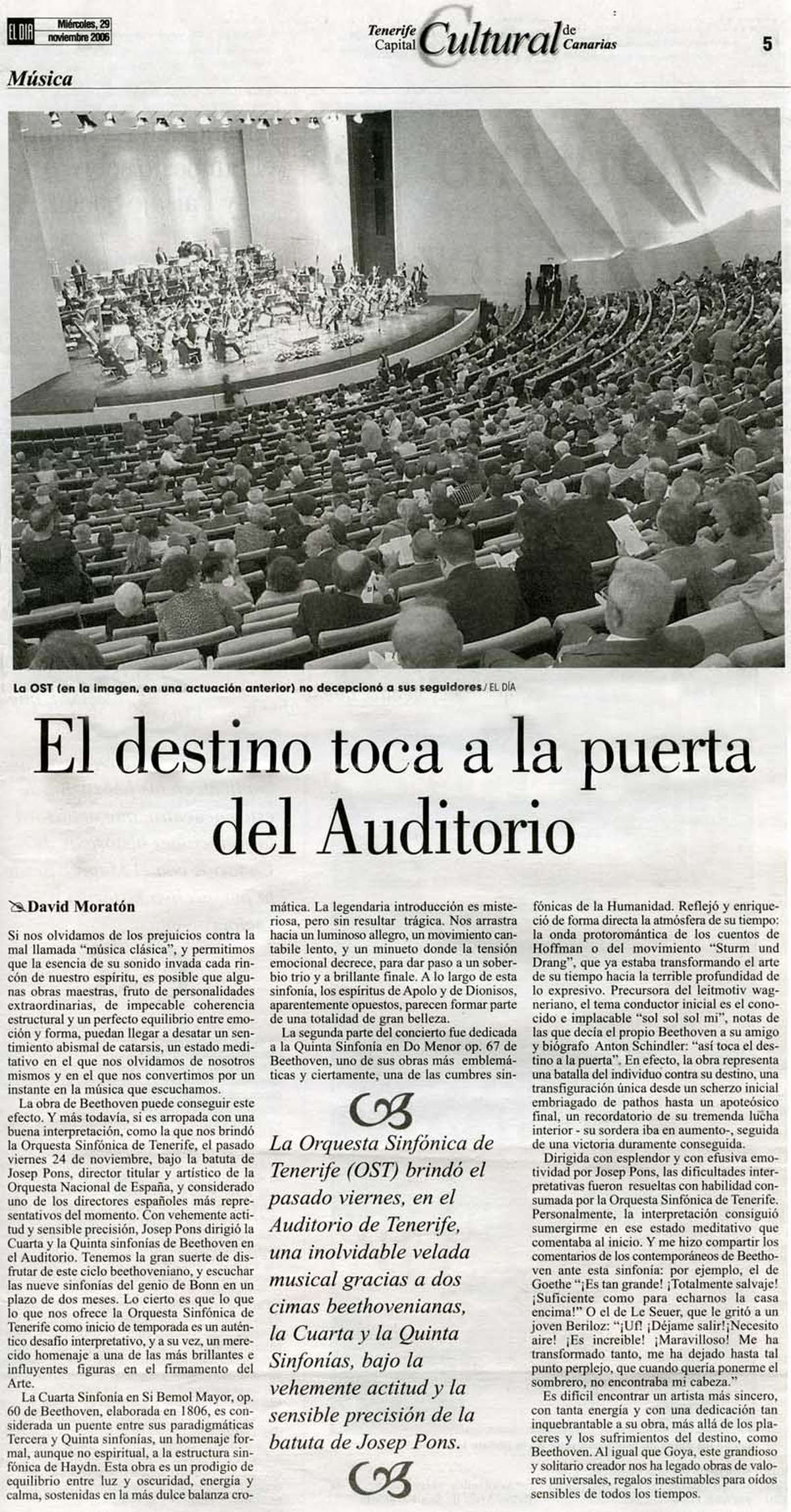
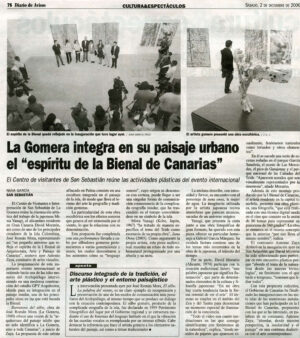
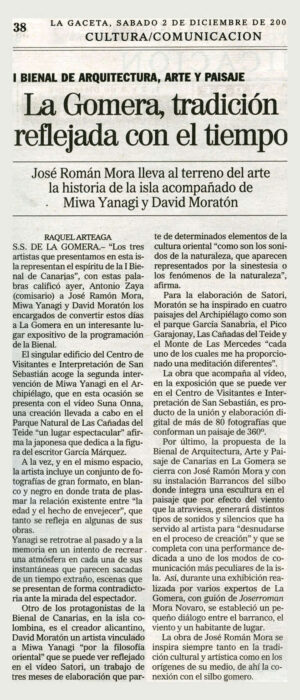
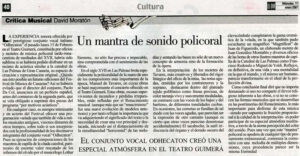
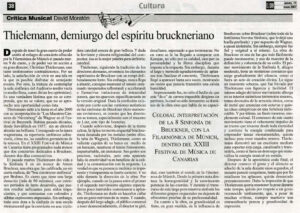
Reviews
There are no reviews yet.